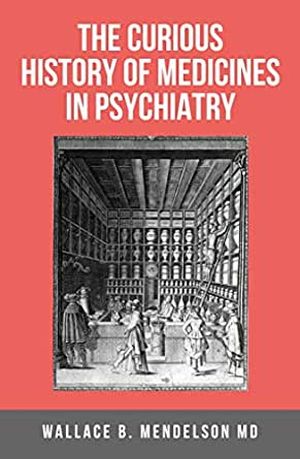Le site est de retour en ligne. Cependant, nous effectuons encore des tests et il est possible que le site soit instable durant les prochaines heures. 🙏
The Curious History Of Medicines In Psychiatry
Fiche technique
Auteur :
Walace B. MendelsonGenre : EssaiDate de publication (États-Unis) : janvier 2020Langue d'origine : AnglaisRésumé : In the years following World War II, there were no effective medicines for schizophrenia, bipolar disorder or major depression. There were not even names for such things - words like 'antipsychotic', 'mood stabilizer', 'antidepressant' or 'tranquilizer' had not even come into being. Within the next two decades all these types of medicines were developed. Most of these discoveries occurred inadvertently, often with a chance observation by a physician or scientist who was looking for something else. Who would have predicted that war surplus fuel from German V2 rockets would be used to develop a new tuberculosis drug, and that a doctor prescribing it noticed that patients felt more hopeful, and thought this might be useful for depression? Or that a scientist testing a preservative for penicillin noticed that animals became quieter, and wondered if it might be a helpful treatment for human anxiety? In this book Dr. Mendelson, a Distinguished Fellow of the American Psychiatric Association, draws upon forty years of experience studying medicines to describe how they were found, as well as the context of world events and the lives of the discoverers.

